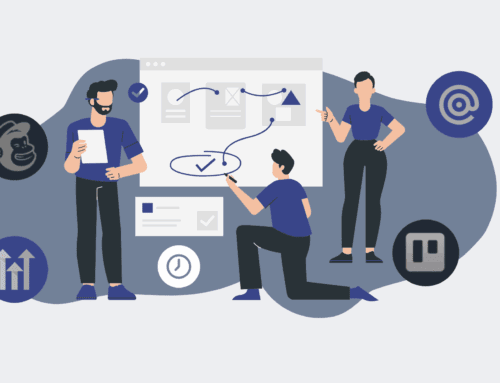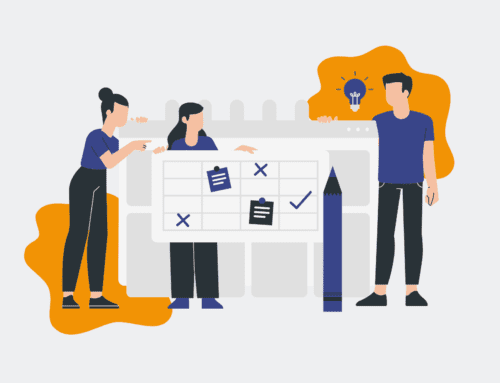Building an AI-Ready Culture in Your HR Department
The conversation around Artificial Intelligence in Human Resources often begins with automation: streamlining recruitment, personalizing employee experiences, or analyzing workforce data. While these operational efficiencies are undeniably valuable, true AI readiness in an HR department transcends mere tool implementation. It demands a fundamental shift in culture – a proactive embrace of innovation, continuous learning, and a strategic redefinition of the human-AI partnership. At 4Spot Consulting, we’ve witnessed firsthand that the most significant hurdles to AI adoption aren’t technological; they’re cultural.
Beyond the Hype: Understanding Strategic AI Integration
Many HR leaders are bombarded with promises of AI revolutionizing their department overnight. The reality is more nuanced. Strategic AI integration isn’t about replacing human judgment with algorithms; it’s about augmenting human capability, freeing up high-value employees from repetitive, low-value tasks. This allows HR professionals to focus on strategic initiatives like talent development, employee engagement, and fostering a robust company culture. The goal is to elevate HR from an administrative function to a true strategic partner, impacting the bottom line and driving organizational growth. An AI-ready culture understands this distinction and champions AI as a partner, not a competitor.
The Human Element: Leading with Vision and Empathy
An AI-ready culture starts at the top. HR leaders must not only understand the potential of AI but also articulate a compelling vision for its role within the department. This involves more than just purchasing software; it requires leadership to proactively address concerns about job displacement, emphasize the opportunity for new, more strategic roles, and invest in reskilling initiatives. Empathy is paramount. Acknowledging anxieties and fostering open dialogue about how AI will enhance, rather than diminish, human roles is crucial. When employees feel supported and see a clear path for their own growth alongside AI, resistance transforms into enthusiasm.
Cultivating a Mindset of Continuous Learning and Adaptability
The pace of AI innovation is relentless. What’s cutting-edge today might be standard practice tomorrow. An AI-ready HR department is therefore a learning organization. This means fostering a culture where experimentation is encouraged, failures are seen as learning opportunities, and continuous professional development is prioritized. Consider establishing internal AI champions, creating cross-functional teams to explore AI solutions, or even dedicating a portion of professional development budgets specifically to AI literacy. This isn’t just about technical skills; it’s about developing the critical thinking and adaptive intelligence necessary to navigate an evolving technological landscape.
Data Governance and Ethical Considerations: Building Trust
AI’s efficacy is directly tied to the quality and ethical handling of data. Building an AI-ready culture inherently means establishing robust data governance frameworks. HR departments manage some of the most sensitive personal data within an organization. Therefore, discussions around data privacy, bias in algorithms, and transparency in AI decision-making are not optional – they are foundational. Employees and candidates must trust that their data is handled responsibly and that AI systems are deployed equitably. This commitment to ethical AI not only mitigates risks but also builds confidence among all stakeholders, reinforcing the human-centric approach that should define HR.
Strategic Implementation: Starting Small, Scaling Smart
Transforming an HR department into an AI-ready powerhouse doesn’t happen overnight. It’s a journey that often benefits from a phased approach. Rather than attempting a sweeping overhaul, identify specific pain points where AI can deliver immediate, tangible value. Perhaps it’s automating the initial screening of high-volume applications, personalizing onboarding journeys, or using predictive analytics to understand turnover risk. These initial successes build momentum, demonstrate ROI, and create internal advocates. As these smaller initiatives prove their worth, the organization gains confidence and expertise to tackle more complex AI integrations. This iterative approach, which we guide clients through with our OpsMap™ and OpsBuild™ frameworks, ensures that AI solutions are aligned with strategic business outcomes, not just chasing trends.
Ultimately, building an AI-ready culture in HR isn’t just about the technology; it’s about leadership, people, and process. It’s about empowering HR professionals with tools that amplify their strategic impact, ensuring ethical data practices, and fostering a dynamic environment where continuous learning is the norm. By embracing this holistic perspective, HR departments can move beyond mere efficiency gains to truly redefine their value proposition, becoming indispensable drivers of organizational success in the age of AI.
If you would like to read more, we recommend this article: The Future of Talent Acquisition: A Human-Centric AI Approach for Strategic Growth








